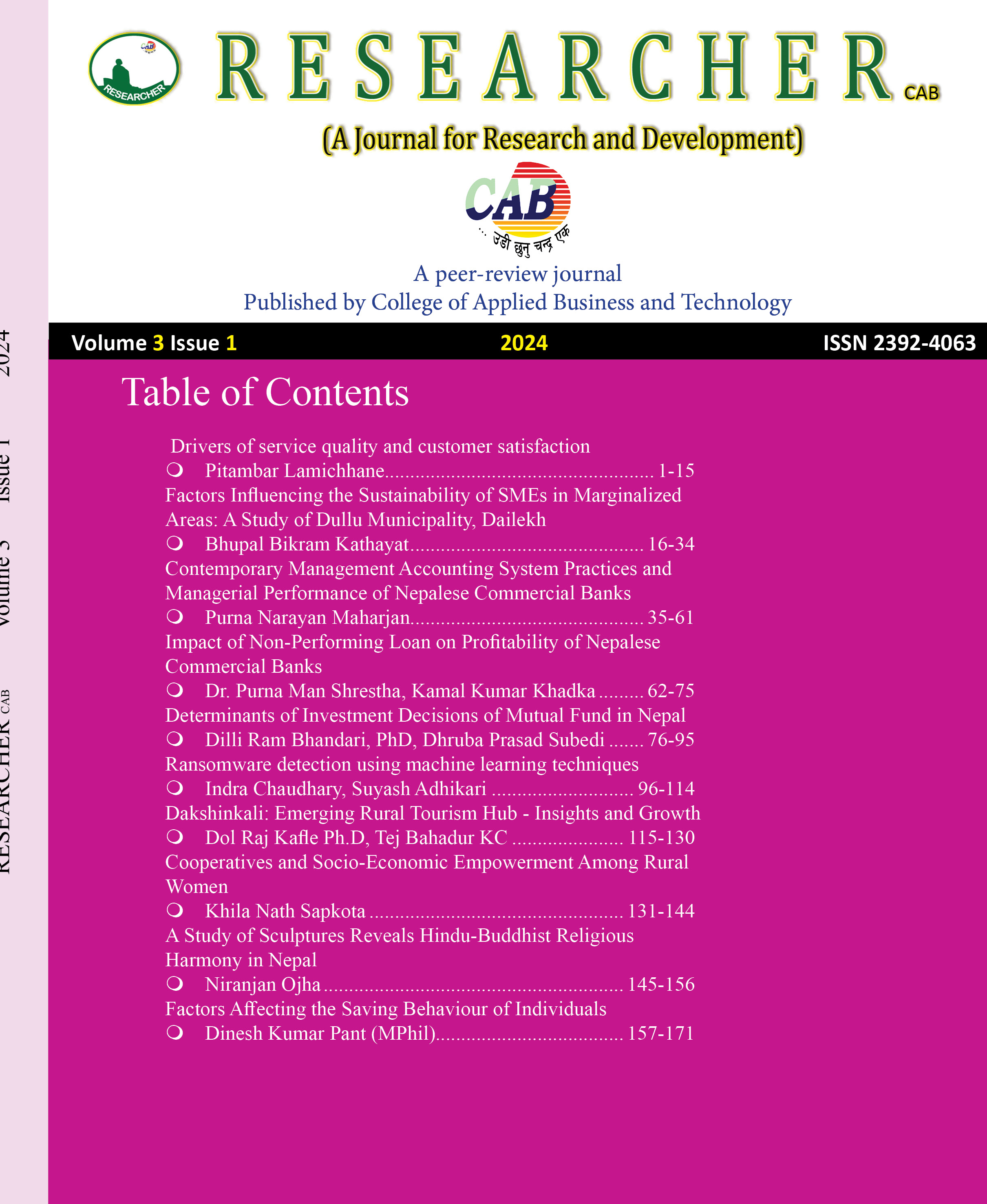Factors Influencing the Sustainability of SMEs in Marginalized Areas: A Study of Dullu Municipality, Dailekh
DOI:
https://doi.org/10.3126/rcab.v3i1.68420Keywords:
Sustainability, marginalized areas, creativity and innovation, resource availability, regulatory complianceAbstract
This research scrutinizes the underlying factors influencing the sustainability of SMEs in marginalized areas, with a particular focus on dimensions such as creativity and innovation, resource availability, regulatory compliance, networking and collaboration, and market competitiveness. It is conducted in Dullu Municipality, Dailekh, and employs an explanatory research design complemented by quantitative methods. Convenience sampling methodology is employed to gather data from a sample of 225 SME proprietors, who are selected as respondents for the study, utilizing survey questionnaires. Inferential statistics, including correlation and regression analysis, reveal the significant impact of creativity and innovation, efficient resource availability, regulatory compliance, networking and collaboration, and market competition on sustainable SMEs. The findings of the study recommend that owners of SMEs give more priority to innovation, optimal utilization of resources, and fostering networks and collaboration among SMEs. Furthermore, policymakers are urged to design initiatives supporting regulatory compliance and incentivizing innovation. Future research is recommended to explore market dynamics and compliance barriers, informing strategies for sustainable SMEs in marginalized locales.




